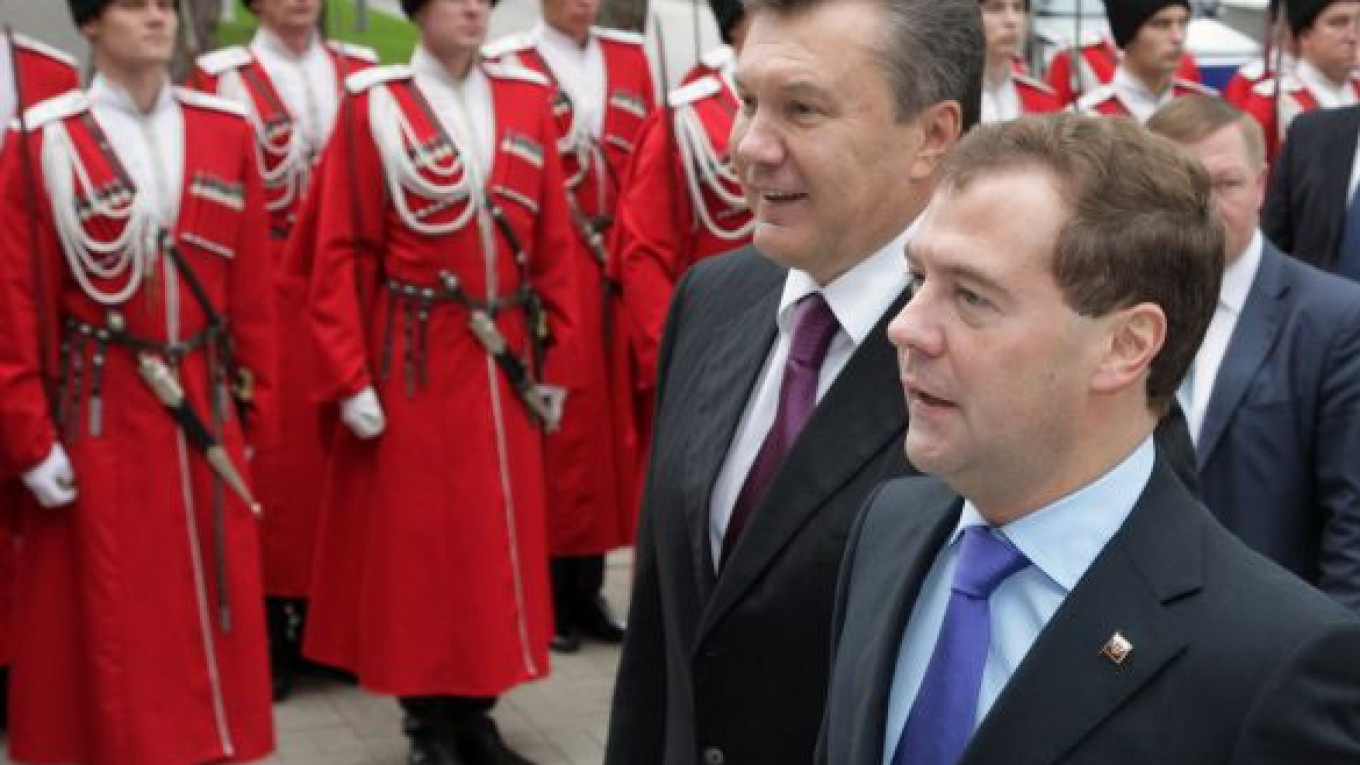President Dmitry Medvedev and his Ukrainian counterpart, Viktor Yanukovych, discussed construction of the Kerch Strait bridge on Monday and said they hope that it will be complete in time for the Sochi Winter Olympics in 2014.
The possibility of a bridge spanning the strait between the Azov and Black seas has been on the table for many years, but bumpy relations between the two countries have delayed the start of the project.
"It would be nice [to finish the construction of the bridge] by the football championship, but it is clear that this is not realistic, so at least by the Sochi Olympics,” Medvedev said during their talks at Gelendzhik, a Krasnodar region resort town on the Black Sea.
Yanukovych said he agreed but still hoped that there was a chance to complete it by the UEFA Euro Cup in 2012.
"This is a very important, momentous project,” Medvedev said.
The subject “is worth presidential attention because it unites the two countries and creates the best possibilities for the citizens to cross borders,” he said.
The bridge and infrastructure will cost an estimated $1.4 billion to $1.7 billion. Medvedev said several banks would be selected to take part, and a working group would be created to oversee the design phase, which will take a year.
“It is unrealistic to expect the project to be completed by 2012, but finishing it by 2014 seems quite doable,” said Sergei Mozalyov, an official with AMOST Foundation, an association of bridge engineers. “But completion of this project by 2014 will probably not happen without a big push, given that the project is now in its initial stage.”
Calculating possible environmental risks is also of paramount importance, Mozalyov said, adding, “Sometimes this assessment may take years.”
A Message from The Moscow Times:
Dear readers,
We are facing unprecedented challenges. Russia's Prosecutor General's Office has designated The Moscow Times as an "undesirable" organization, criminalizing our work and putting our staff at risk of prosecution. This follows our earlier unjust labeling as a "foreign agent."
These actions are direct attempts to silence independent journalism in Russia. The authorities claim our work "discredits the decisions of the Russian leadership." We see things differently: we strive to provide accurate, unbiased reporting on Russia.
We, the journalists of The Moscow Times, refuse to be silenced. But to continue our work, we need your help.
Your support, no matter how small, makes a world of difference. If you can, please support us monthly starting from just $2. It's quick to set up, and every contribution makes a significant impact.
By supporting The Moscow Times, you're defending open, independent journalism in the face of repression. Thank you for standing with us.
Remind me later.






